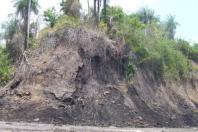Serbia
The plot:
Serbia has known of over 20 deposits of oil shale throughout the country for a long time. In recent times various Estonian corporations have begun particular exploration of the largest deposit near Aleksinac in the southeast of the country. The plans are for open-cast and ultimately in the ground mining of the shale resource near Aleksinac.
The geological form of oil shale prohibits current technology to burn directly for power but in fact may produce kerogen-based synthetic oil. This form of development would be among the most water and energy intensive, greatly increasing health concerns for the population of the industrial town of Aleksinac and the over-all concerns of the environment and water situation for Serbia as a whole. Underground aquifers and the surrounding areas to any large plant for shale-to-oil conversion and pyrolosis in particular could be heavily damaged with toxic run off and waste.
The details:
There are over 20 deposits in Serbia, only one at Aleksinac is thought to have commercial potential. With 4.7 tonnes of oil shale in the country, only some ten percent of Aleksinac's deposit is estimated recoverable. It is estimated that Aleksinac is situated over 2 billion tonnes with 4.7 billion tonnes estimated in the over-all territory of the country.
200 mn bbl is estimated to be recoverable at the Aleksinac location.
Estimates of 30 000 bpd have been floated; two Estonian corporations have looked into development of kerogen shale for synthetic oil. Eesti Energia (also known as Enefit) currently interested in possible mining, previously Viru Keemia Grupp of Estonia has indicated interest as well. According to tests run by VKG, Serbian oil shale would not produce electricity in a similar-to-coal fashion. Instead, conversion to oil from kerogen infused rock is proposed.
Since the dismembering of Yugoslavia throughout the 1990's, the economy has been through freefall in Serbia, with over 50% unemployment among youth that previously would have worked in an industrial capacity. This economic desperation combined with a region of the country previously reliant on coal mining has made for oil shale development proposals to have any possible environmentally destructive consequences overlooked by the majority of the population.
Proposals for oil shale developments by Estonian corporations further enforce the notion of Estonian technological advances in shale mining and refining techniques becoming a global phenomenon that may crate an entirely new and vastly destructive form of synthetic oil production the world over.


